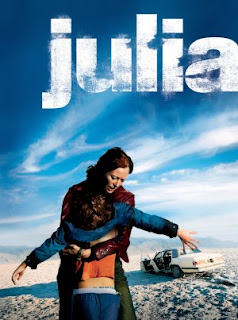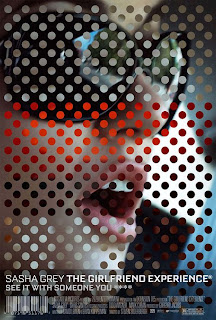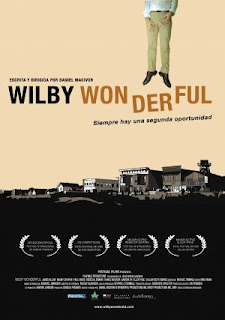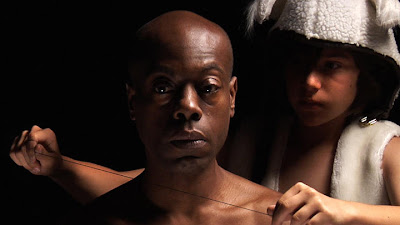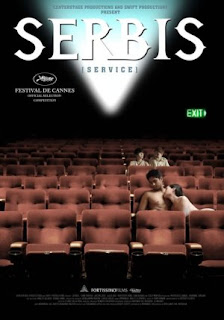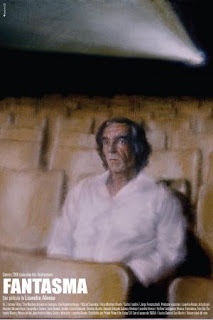 Cinema’s future is, again and still, in a state of limbo, or at least that seems to be the pessimistic prognosis that is surfacing more and more often when a major film festival opens its gates. Declining ticket sales, raising home video standards, and lazier people all spell doom and gloom hypotheses for our beloved past-time. Such is the theme and undertone of two recent art-house experiments from the last few years, Fantasma by Argentina’s Lisandro Alonso, and Goodbye, Dragon Inn by Taiwan’s Tsai Ming-Liang.
Cinema’s future is, again and still, in a state of limbo, or at least that seems to be the pessimistic prognosis that is surfacing more and more often when a major film festival opens its gates. Declining ticket sales, raising home video standards, and lazier people all spell doom and gloom hypotheses for our beloved past-time. Such is the theme and undertone of two recent art-house experiments from the last few years, Fantasma by Argentina’s Lisandro Alonso, and Goodbye, Dragon Inn by Taiwan’s Tsai Ming-Liang.
Alonso’s mini-experiment between his more ‘complete’ films Los Muertos and Liverpool is rife with subtle ideas and suggestions, as well as unsubtle self-references that border on ironic narcissism. It is certainly his most urban film, escaping from the boonies to take place in a sterile loft which happens to be equipped with a generously sized screening room, conveniently screening/premiering his previous film Los Muertos. The building, and it’s location in the city, is arbitrary, though, as it is just as vacant and alien as the jungles, rivers, and seas which make up the settings of the rest of Alonso’s oeuvre. With a title like Fantasma, one is on the look out for anything out of the ordinary or potentially supernatural. One scene of uncanny deja vu is particularly startling, going beyond a simple synchronicity to be a flat-out impossible repetition of events. Later, the light from the film projector flows fluidly and ominously from the rear of the theatre and out through the left of the frame, creating a vector that cuts through the space as archetypically as the Lumiere train. Is this light the ghost, the phantom, that Alonso’s title is alluding to? Or does that distinction go to Vargas, the actor watching his own performance in Los Muertos, seemingly for the first time (perhaps even his inaugural visit to the cinema), Fantasma‘s central event, and arguably its climax. More likely, it’s the very act of watching a film in the theatre.
The film has a depressed air running through it because of the emptiness of it all, and I’m not only ascribing that trait to the theatre. While the film avoids the pedestrian observations that plague Goodbye, Dragon Inn, and is able to retain Alonso’s signature realism despite its smattering of magical-realist elements, it still can’t help but feel like another cynical, post-cinema statement where the characters wander around in a sedated shock as they witness the end, shoveling another scoop of dirt onto the ground that lays before the Cinematheque’s tombstone. It is too much to ask, apparently, that we at least wait until the movie theatre has actually vanished before writing its obituary. It could also be useful for a film that is critiquing this ‘death of cinema’ to be constructed more accessibly, perhaps more ‘mainstream’ even, so that it can reach the audience that is largely responsible for putting it on life-support in the first place. Making such statements in this structured, emotionally-and-narratively-stagnant state, with this pacing, only guarantees that the only audience that will see the film will be those who attend the film festivals in which they are programed. Needless to say, they’re preaching to the choir.
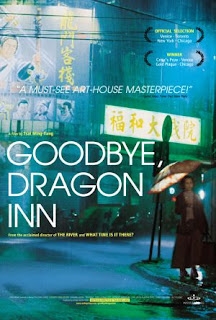 Meanwhile, Goodbye, Dragon Inn doesn’t merely show cinema sans an audience, but portrays its remaining attendees as meathead dunces with no manners. It would have been truthful and funny if the situations portrayed in the film, most of which are essentially attacking a poor submissive teenage boy, if they weren’t so over-amplified as to come off as Looney Tune-ish. In a massive, virtually empty theatre, every new patron crowds around the boy, kicking up their shoeless feet well into his comfort zone, unaware of claustrophobia or common courtesy. Characters enter and exit the theatre, often spending only a few minutes watching the film, while one woman cracks open nuts and crunches them in her mouth, rhythmically, finally scaring the defenseless boy away for good. So, I get it, modern cinema-goers are rude and don’t care about the integrity of cinema’s artistic value. But this observation is not enough material for a feature length film, and Tsai really has to draw this out to hit the 80-minute mark. Almost every shot, which are almost all completely still and well-composed, lasts twice as long as it should, at least. A shot near the end of a crippled woman climbing and descending the theatre’s steps is interminable. It’s beyond pointless, hitting a level of annoyance for the hamfisted demands to contemplate the emptiness.
Meanwhile, Goodbye, Dragon Inn doesn’t merely show cinema sans an audience, but portrays its remaining attendees as meathead dunces with no manners. It would have been truthful and funny if the situations portrayed in the film, most of which are essentially attacking a poor submissive teenage boy, if they weren’t so over-amplified as to come off as Looney Tune-ish. In a massive, virtually empty theatre, every new patron crowds around the boy, kicking up their shoeless feet well into his comfort zone, unaware of claustrophobia or common courtesy. Characters enter and exit the theatre, often spending only a few minutes watching the film, while one woman cracks open nuts and crunches them in her mouth, rhythmically, finally scaring the defenseless boy away for good. So, I get it, modern cinema-goers are rude and don’t care about the integrity of cinema’s artistic value. But this observation is not enough material for a feature length film, and Tsai really has to draw this out to hit the 80-minute mark. Almost every shot, which are almost all completely still and well-composed, lasts twice as long as it should, at least. A shot near the end of a crippled woman climbing and descending the theatre’s steps is interminable. It’s beyond pointless, hitting a level of annoyance for the hamfisted demands to contemplate the emptiness.
Which again brings up the irony of mourning the death of cinema via sedated, uninspired filmmaking. If any film or cinematic movement is going to save the theatre-going experience, this certainly isn’t it. Goodbye, Dragon Inn threatens, many times, to become a slideshow presentation, while Fantasma, with its interesting ideas and all, is essentially an architecture study, devoid of humanity of any kind. I’m all for elliptical cinematic experiences lacking characters as much they lack a clear purpose, but, if anything, these films are an argument for the art gallery as the future home of celluloid, not against.
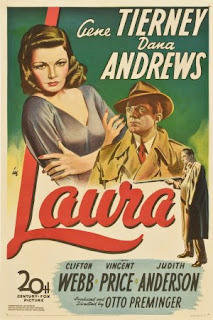 Over the next month I’ll be attending roughly a dozen films in the Cinematheque Ontario retrospective for Mr. Preminger, a man with whom I’ve been unacquainted for far too long. Well, I’m impressed. This is such a nice, tight police procedural. I’d known that the film was notoriously homaged in Twin Peaks, naming the series’ late beauty after the deceased subject of this film. Fortunately, it is a slight nod rather than a full-blown reproduction, and nothing in this film is spoiled by Lynch’s opus.
Over the next month I’ll be attending roughly a dozen films in the Cinematheque Ontario retrospective for Mr. Preminger, a man with whom I’ve been unacquainted for far too long. Well, I’m impressed. This is such a nice, tight police procedural. I’d known that the film was notoriously homaged in Twin Peaks, naming the series’ late beauty after the deceased subject of this film. Fortunately, it is a slight nod rather than a full-blown reproduction, and nothing in this film is spoiled by Lynch’s opus.
